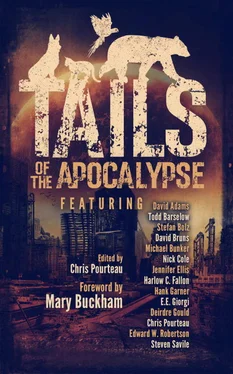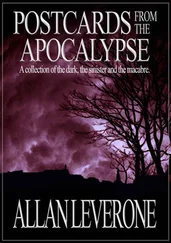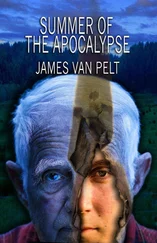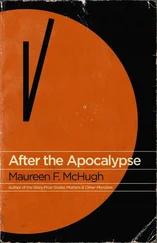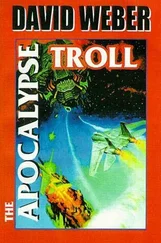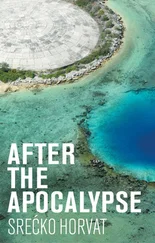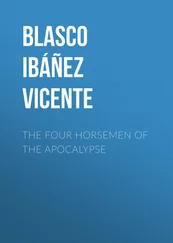I almost told him, but almost is a big word. I couldn’t. Not when it came right down to it. Telling someone you think they’re going to die because they’ve seen a ghost dog… well if it isn’t exactly bugfuck crazy, it certainly isn’t normal conversation, put it that way.
And if it wasn’t a ghost, then it was a flesh-and-blood animal, and it was only a matter of time before it became desperate enough to attack.
We were in the heart of its territory.
We made camp that night, huddled around the few sticks we’d managed to scavenge, warming our hands. We didn’t talk much at all. No matter how much life we managed to stir into the flames, they didn’t give off any real heat. I was shivering despite being layered up in several skintight tee shirts beneath my heavy-duty four-seasons fleece. I should have been sweating. But I just didn’t sweat anymore.
He saw it again. I know he did. But he didn’t say anything. That was the first real hint he knew what was going on. He was a smart guy, Yusef. When no one else was looking, he tugged down the collar of his shirt and I saw the blisters. He was sick.
The dog had come for him, come to shepherd him into a better death.
Again, I thought about the golden shadow shape that had dogged my footsteps since the plane; my own ghost light.
I wished he’d fought it. I wished he’d realized it didn’t have to end this way, that there had to be hope, there had to be miracles in this ruined land.
His answer was to tell me there were 23,000 nuclear warheads in existence. That was it. His version of a miracle. I didn’t grasp what he meant until we reached Arthur’s Seat and what had been Edinburgh Castle.
Twenty-three thousand warheads.
How many of them had been launched? Not just one or even a handful. When the Russians launched theirs, had we retaliated with Tridents and the Americans with their bombs, filling the sky with that long-promised mutual end? We had no way of knowing, of course. There weren’t secret factions out there with shielded computers and secret networks clued in to news broadcasts on hidden television stations. There was nothing. We hadn’t seen a soul since leaving the wreck. That alone scared me more than all the other things we had seen added together.
Edinburgh had been razed. Several walls had survived intact, the shadows of collapsed landmarks charred onto them as a reminder of the city that had been lost. The wind was the worst. It churned up the ash, making devils to blow down Princess Street. It stung my eyes.
I wept. And not just because of the dust.
There was no weakness in tears, no matter what I might have thought when I was a kid trying to learn to be a man.
We went down towards the River Leith, though in my mind I was calling it the Lethe, which made it feel like an entirely different river we had to cross. The Queen’s ship was down there. Or had been. The metal had buckled and warped under the incredible heat. Now the thing in the water was unrecognizable.
Staring, fixated at the hulk, I heard something.
Birds.
A huge murder of crows. Thousands upon thousands of them came banking and arching down the slope from the ruined city to ride the thermals out over the water. They cast a shadow across the world that might—if we truly were Grail Knights—have been a dragon. It wasn’t until the first of them fell out of the sky that I began to see the sickness in the flock. The surge of hope I’d felt at finally seeing some sign of life in the land died with them as one by one the birds fell, splashing down into the estuary.
It took an hour for the last of the circling birds to fall.
An hour of us watching them die.
I hated my eyes.
There was nothing there for us. We needed to move on. To hope that it was different in Newcastle or York or Leeds. We needed to believe that somewhere had survived. But with every passing mile, it became more obvious that no place had.
On the third morning out of Edinburgh, Yusef left us.
We’d slept around the campfire that night, taking refuge in an old Roman hillfort in the borderlands. When we woke, he wasn’t there. I stood in the doorway calling his name. My voice echoed across the Northumberland moors. Purple heathers stretched as far as the eye could see. Midges swarmed around us, but where a few weeks ago they would have fed on our blood, they left us alone now.
I saw the dog in the heather, playing. It raced in circles, chasing some invisible prey, each circle faster and tighter than the one before. I could have watched him play for hours. The way his tail was up and his gait changed to a prance as he finally tired was so familiar.
When the brothers emerged from the hillfort, I thought about pointing him out, but realized I didn’t want them to tell me they couldn’t see him.
Instead, I told them that Yusef was gone.
They didn’t say anything.
Maybe he’d walked off in the night to die alone so we wouldn’t have to worry about his body? What would we have done? Buried him? Built a cairn of stones over his corpse or left him to feed the animals? I realized we hadn’t discussed what we wanted to happen to us when we died. There were four of us left. We weren’t alone in this. Our deaths would require a certain measure of practicality from those who survived. We should agree on these kinds of things going in, shouldn’t we? It would save any arguments if someone wanted to be laid out for the birds or someone else wanted to be cut up into steaks to feed the rest of us.
I couldn’t remember the last time I’d been hungry.
Properly hungry.
I should have been ravenous.
But I wasn’t.
I remember a story, the Lambton Worm. I’d grown up with it. A local legend. I could only remember the first few lines of the poem, but I knew its lair was supposed to be around here somewhere.
Whisht! Lads, haad yor gobs
An’ aall tell ye aall an aaful story.
Whisht! Lads haad yor gobs
An’ aa’ll tell ye ’boot the worm.
The legend went that a local lad had skipped church to go fishing but hooked the devil rather than a fish. But thinking Old Toby a mere lamprey-like worm, the lad tossed it down a well and forgot all about it. As penance for his rebellious youth, the lad joined the Crusaders and went off to the Holy Land while the worm grew and grew down that well, until it grew so big, it could wrap itself seven times around the base of Worm Hill. The worm would snatch local children, growing fat on them, you see. With armor and sword magically blessed by a witch—the blessing itself heavily weighted with a curse—the lad’s promised his armor will protect him and his sword slay the worm. But after the worm is dead, the witch requires the lad to kill the first living thing he sees to pay the blood price and seal his pact with her. He slew the worm in a raging river, then looked up at the riverbank to see his beloved dog barking, full of excitement at its master’s return. The lad couldn’t kill his dog, and in breaking the pact brought a curse down on his family that saw nine generations of his descendants doomed—his son drowned at sea, his grandson killed at the Battle of Marston Moor, his great-grandson slain in the Battle of Wakefield, his great-great-grandson trampled under the hooves of his horse, and so on.
We were a day’s walk from Worm Hill.
The dragon-slaying sword was supposedly sealed away in the monument built atop the hill.
Was that the kind of truly British relic that could unite the people?
The story of the Lambton Worm was a variant of the Saint George tale, with the worm replacing the dragon. There was no more British a legend than that of George and the Dragon. Could the sword under the hill be Ascalon, the saint’s fabled sword?
Читать дальше
